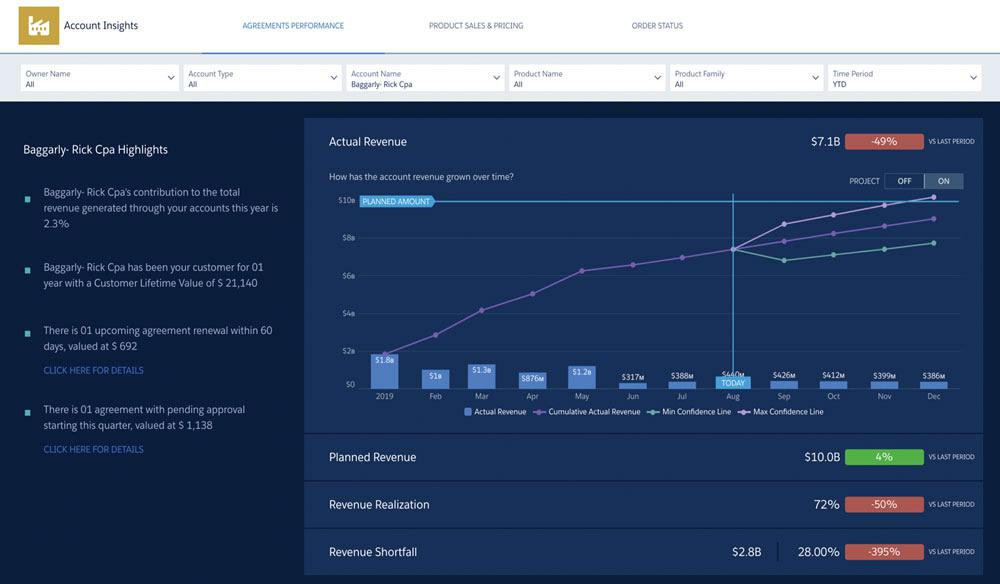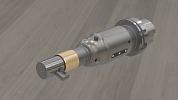Vice President
- FMA
- The Fabricator
- FABTECH
- Canadian Metalworking
Digital transformation and the future of manufacturing
Transform your business today
- By Dave Borrelli
- June 3, 2020
Most people don’t think about it as they shop for a new washing machine, but the manufacturing industry is in the midst of a revolution. Rapid technological advances and changing consumer preferences have transformed what it means to operate successfully.
This has led to the need for manufacturing companies to change almost everything they do. Change how they sell. Change how they compensate their people. Change how they view their billing systems. Today demands an increasingly customer-centric mindset whereby companies understand their customers more deeply than ever before and use that understanding to build more personal and relevant products and services.
Technology is changing business modelsFourth Industrial Revolution technologies — such as AI, blockchain, internet of things (IoT), and 3D printing — are unleashing disruptive forces, upending traditional business models, and ultimately shifting from being product-centric to customer-centric, putting the customer and consumer at the centre.
With the emergence of the IoT, it’s no longer enough for manufacturers to simply make and sell a product. IoT collects and transmits data to empower manufacturing businesses and allow them to proactively maintain their products across life cycles.
For example, jet engine producers can now gather data on their engines before, during, and after a flight. It’s important to leverage that data to optimize performance, spotting and pre-emptively solving problems. This means that today’s manufacturers are now in the business of selling engine uptime, not just the engines themselves.
Beyond IoT, AI can have a significant impact on your business, including bettering the lives of field sales representatives.
Now that you know that you are collecting large amounts of valuable data and shifting to a customer-centric business model, the next step is to learn how to best access and leverage that data to meet and exceed customers’ expectations, while finding opportunities to drive internal collaboration and efficiencies.
Meeting changing customer expectations
Companies increasingly rely on customer relationship management (CRM) software to act as a system of engagement with customers. Around the world organizations continue to increase their investment and evolve their cloud environments to optimize technology like CRM to drive their business forward. In fact, IDG reports that 73 per cent of enterprises have at least one application or a portion of their enterprise computing infrastructure in the cloud, with almost half of cloud computing budgets allocated to software as a service (SaaS) apps (48 per cent).
To meet today’s customer and business requirements, employees need real-time access to accurate data on any device to make timely and sound business decisions. As an example, salespeople spend almost one-third of their time searching for information instead of serving their customers. This is where integrated processes and systems play an important role.
Manufacturing businesses often have complex physical operations that can’t be easily modified to meet changing customer needs. Scaling to fulfil new orders can be both expensive and time-consuming without the visibility that allows them to predict demand. What’s more, without proper enterprise resource planning (ERP) integration, employees are forced to pivot between systems -- CRM, ERP, and others -- sometimes requiring customers to talk to multiple departments, and often meaning that self-service is unavailable. Beyond the less than ideal experience this provides to your customers, your employees are liable to become just as frustrated as customers with these legacy experiences.
Thus, connecting all of these systems together is crucial to delivering the connected customer, partner, and employee experiences that bring digital transformation.
Benefits of collaboration
The changing landscape makes it easier for new entrants to disrupt the relationship between businesses and their customers. This is where data about customers’ behaviours, collected via an ERP tool or point-of-sale (POS) system, can play a pivotal role in helping sales teams understand customer intent and sentiment and predict purchasing behaviours.
By integrating technology systems, manufacturers can expect to see the following benefits:
- Improved customer experience
- Consolidated customer data
- Improved quote to fulfillment
- Reduced data entry and errors
- Reduced business and IT support costs
- Improved productivity and margins
While this is just the tip of the iceberg, augmenting CRM data with back-office data provides employees with a 360-degree view of their customers and business. This will not only help teams better understand a potential or current customer’s propensity to buy, while allowing for better sales forecasting and the ability to set more accurate targets, but also contributes to better collaboration between departments.
Breaking down the silos between front and back office empowers sales, operations, marketing, and other teams to align, ultimately driving business results. In fact, IDC found that bringing down these silos has led to average revenue gains of 2 to 5 per cent, inventory reductions of 10 to 20 per cent, and an improvement in customer service by 2 to 5 percentage points.
By gathering the data, integrating your systems, and freeing up your employees’ time to foster and build relationships with customers, you’re well on your way to transforming your business and remaining competitive in today’s digital-first landscape.
Moving forward
Digital transformation is about more than digitizing existing manual processes. It’s an opportunity to reimagine your entire business: how to create best-in-class customer and employee experiences, how to drive incremental revenue, and how to increase productivity. A connected, agile technology landscape serves as the foundation for a successful business, and core to delivering these outcomes is integrating your technology.
Dave Borrelli is area vice-president of commercial and enterprise west sales for Salesforce Canada, 10 Bay St., Suite 400, Toronto, Ont. M5J 2R8, 647-256-4126, www.salesforce.com.
subscribe now


Keep up to date with the latest news, events, and technology for all things metal from our pair of monthly magazines written specifically for Canadian manufacturers!
Start Your Free SubscriptionAbout the Author
- Industry Events
MME Winnipeg
- April 30, 2024
- Winnipeg, ON Canada
CTMA Economic Uncertainty: Helping You Navigate Windsor Seminar
- April 30, 2024
- Windsor, ON Canada
CTMA Economic Uncertainty: Helping You Navigate Kitchener Seminar
- May 2, 2024
- Kitchener, ON Canada
Automate 2024
- May 6 - 9, 2024
- Chicago, IL
ANCA Open House
- May 7 - 8, 2024
- Wixom, MI





















